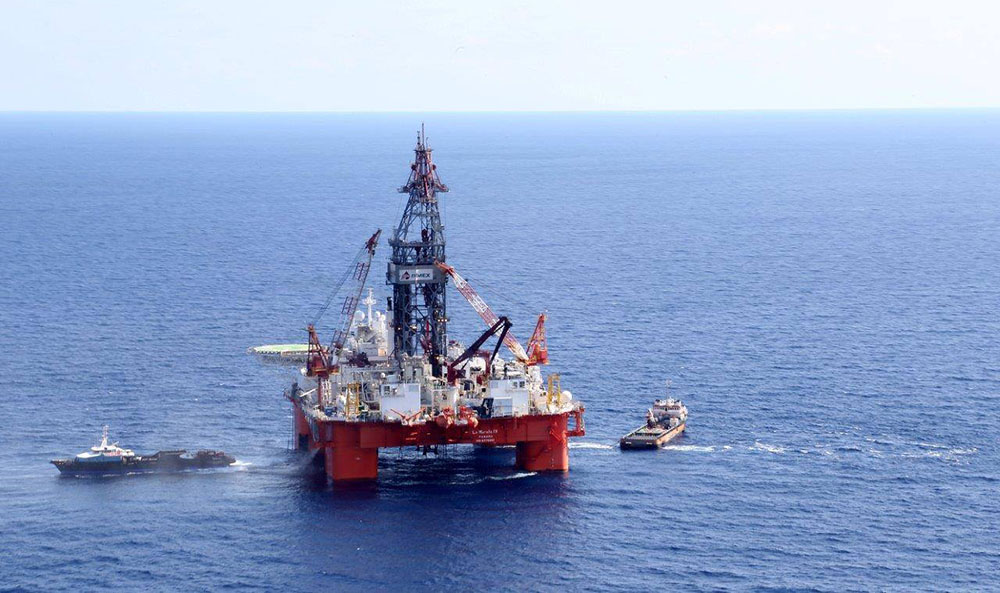The first thing to realize when considering any aspect of lawlessness in Mexico, including in Mexican and adjacent waters, is that Mexico is a thoroughly corrupt country.
The corruption is historic, endemic and permeates every aspect of Mexican life. This corruption is directly responsible for the lawlessness that has allowed criminal gangs of all stripes to take over daily life in Mexico, and now they have extended their range to offshore oil installations.
There are over 200 installations in the Bay of Campeche, with hundreds of supply- and other support vessels crisscrossing the Bay’s shallow and turgid waters. There are also thousands of fishing vessels, from outboard-powered to large diesel trawlers, that ply these waters and provide effective cover for the pirates that operate among them.
The Mexican government can’t even control lawlessness on land, so it’s not surprising that it has no effective answer to the rash of recent attacks on offshore installations and vessels in Mexican and adjacent waters. In fact, according to the International Transport Workers’ Federation (ITF), there were over 180 attacks in these waters in 2017.
“There have been few arrests in any of these pirate attacks in recent years,” noted The New York Times in a June 18, 2020, article, which quoted Lee Oughton, COO of a Mexico-based security consultancy. “They (the pirates) are plenty aware of Semar’s reaction time and lack of resources to tackle this crime,” he said, referring to the Mexican navy. The natural inference would normally be to harden and arm the platforms, but this is easier said than done.
In a laughably ironic situation, the ownership of military-grade weaponry is illegal in Mexico and getting permission to own any kind of firearm is difficult. Of course, like the criminals in gun-free Chicago, cartels and even common bandits have no problem obtaining weaponry, including the full-auto assault weapons that have been used in recent attacks on oil platforms.
Certainly, oil and service companies cannot afford to operate in an environment in which their employees are routinely subjected to violence, and with an attack happening every other day, according to ITF figures, such attacks have to be considered routine. Happily, the same corruption that pervades other Mexican governmental functions can also work to streamline oil companies’ efforts to get permission to arm their facilities, so that private armed-security companies hired by Pemex and the foreign oil companies now allowed to operate in Mexican waters can arm their teams sufficiently for the mission. And although a stationary platform is by definition a sitting target, the usual design and construction of a platform also offers some defensive advantages.
First, a platform has the accommodations to support a defensive force of almost any size. Further, the design of a platform, with a lower “boat” deck a few meters above the waterline and a series of open stairways leading up to the platform’s lower deck, also facilitates defense. The lower deck is normally accessible by only one or two stairways. Restricting access to a single stairway and welding a heavy gate at the first landing above the boat deck on that stairway, would offer serious resistance to any attempt to gain access to the platform’s accommodations. Further, providing a reinforced firing port covering this single-access stairway from the platform’s lower deck would prevent an attempt to breach the gate. Normally, the platform itself is too high above the water for an attempt to gain access by any other means.
In any event, the maritime community has 2,000 years of recorded experience in dealing with pirates, including pirates with a lot more experience and firepower than those possessed by the thugs and brigands now plaguing the Mexican offshore oilfield.
As President Jefferson demonstrated with the Barbary Pirates in 1801, and the NAVFOR (EU Naval Force) effort proved in suppressing Somali piracy a decade ago, a swift and decisive response is the best answer to piracy. Now is the time to keep Mexico’s offshore oilfield from turning into Tijuana.




